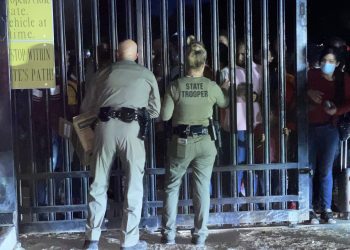DES MOINES, Iowa – Gov. Kim Reynolds on Wednesday morning signed HF 848, a bill that sets up grants for broadband providers to help expand broadband into rural Iowa. The Iowa Legislature passed the bill unanimously, with the Iowa House voting 94-0 in favor of the bill on March 29 and the Iowa Senate voting 46 to 0 on April 6.
“As we talked about early on in the session, Iowa currently has the second slowest broadband speed in the country, and a third of our counties are in broadband deserts. In the 21st century, when access to high-speed internet is growing increasingly necessary for everyday life from work to entertainment to health care, we needed to act,” she said.
“Using a tiered system, the investment will be prioritized in areas of the state where the barriers to broadband installation are at their highest and internet speeds are at their lowest. For areas of greatest need, the state will offer service provider funding of 75 percent for projects that increase download and upload speeds to 100 megabytes (sic – the bill says megabits) per second each. For perspective, the least connected cities in Iowa don’t even have an average internet speed of 10 megabits per second,” Reynolds explained.
“In places where barriers prevent the installation of the infrastructure necessary to receive 100 up 100 down, providers can take advantage of 50 percent state funding to increase download speeds to 100 megabits per second upload speeds to 20. In any case, areas of the state with the least connectivity today will soon experience a significant improvement in high-speed internet and gain access to high-tech, high-touch services that come along with it,” she added.
Reynolds said the COVID-19 pandemic made it clear Iowa had to expand its broadband infrastructure.
“If the pandemic has made anything clear, it’s that things like telework telehealth are not going to go away anytime soon. With high-speed internet, Iowans will be able to compete effectively for the ever-expanding pool of remote work opportunities, and rural areas can attract professionals who might otherwise have relocated to different communities or different states. With high-speed internet, telehealth technology can connect rural medical professionals with a specialist in real-time as they work to provide quite a quality medical care to patients. Broadband also promises to make the streets safer, opening the possibility of deploying internet services in police cruisers, fire trucks, and ambulances. Education will benefit, too, as teachers will be able to use higher speeds to complement their work in the classroom with stream material and virtual connections,” she said.
“Iowa will be empowered to take full advantage of 21st-century technology while competing on a level playing field in a 21st-century economy. And Iowans shouldn’t settle for anything less,” Reynolds said before signing the bill.
The Iowa House and Iowa Senate have tentatively agreed on $100 million in appropriations for the grant system over the next three years. Reynolds told reporters after the bill signing ceremony. She hopes to leverage up to $50 million more in federal funds.















